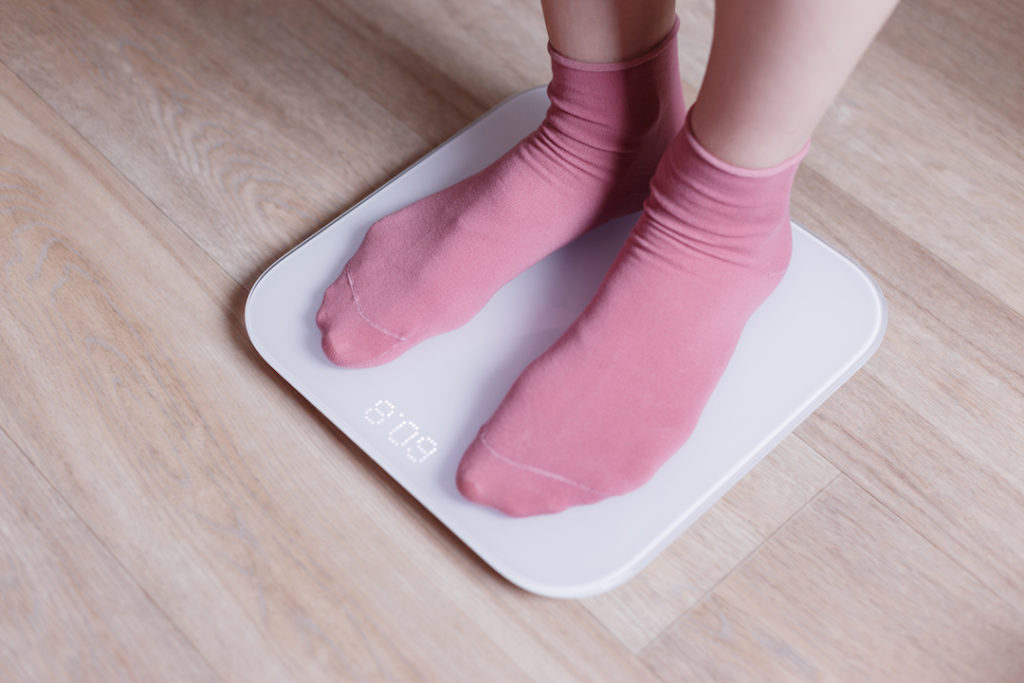Achieve A Healthy Weight
April 3 2019
Making a commitment to maintaining a healthy weight is one of the best things you can do for your health and wellbeing. So how do you do it? Here are several tips on how to help you achieve a healthy weight.
How do I know if I’m a healthy weight?
BMI is a useful tool which can give you an idea if you are a healthy weight for your height. It’s most suitable for people over 18 years old. But it is only an estimate and it doesn’t take into account gender, age, ethnicity and body composition. It is also important if you are concerned about your weight to discuss this with your doctor.
Check your BMI on the Heart Foundation’s BMI calculator.
Healthy heart, healthy you
Making a commitment to maintaining a healthy weight is a great thing you can do for your heart, health and wellbeing.
Talk to your doctor, health practitioner, or an Accredited Practising Dietitian about your weight.
If you do need to lose weight, plan to do it the healthy way. Change your eating habits, be more active and sit less.
Having a healthy body weight lowers your risk of heart problems and can help lower your blood pressure and cholesterol.
Getting to a healthy weight
Losing weight in a healthy way is one of the best things you can do for your long-term health. But it takes time and requires commitment. Many weight loss books and crash diets often suggest quick unhealthy ways to lose weight and won’t help you maintain weight loss in the long-term.
It is all about mindset, don’t think about it as ‘going on a diet’ which is short-term, but as a choice to lead a healthier life.
Thinking about nourishing your body with fresh foods, reducing or removing highly processed foods, and taking every opportunity to be as active as you can, to achieve your weight loss goal.
Heart healthy eating
Healthy eating for your heart includes:
- Plenty of vegetables, fruits and wholegrains
- A variety of healthy protein sources including fish and seafood, lean meat and poultry, legumes, nuts and seeds
- Reduced fat dairy such as unflavoured milk and yoghurt, and cheese
- Healthy fat choices with nuts, seeds, avocados, olives and their oils for cooking
- Herbs and spices to flavour foods, instead of adding salt
* Water as the drink of choice
Be careful of your portion sizes and try to eat mindfully. When you eat mindfully you are less likely to over eat.
How can I be more active?
Increase your physical activity levels by:
- Reducing the amount of time you spend sitting.
- Stand up more often and move around your home, workplace or when you are out and about.
- Incorporate physical activity wherever you can – even if broken up throughout the day.
- Get off the train one stop early or take the stairs instead of the lift. The more often you huff and puff, the better!
Walking is a fun, free way to help keep your heart healthy.
Ask your doctor if you need to do more than 30 minutes of physical activity on most days of the week to lose weight.
Set up a weight loss plan
If you and your doctor agree that you need to lose weight, plan how to do it together. You can decide on what lifestyle changes you can make and help you to be realistic about what you can achieve.
Steps to making a weight loss plan:
- Set realistic weight loss or lifestyle goals.
- Shift your eating pattern towards more fresh foods
- Take every opportunity to increase the number of steps you do, or get active through activities you think you might enjoy on most days of the week (wearing a pedometer / step counter can help)
- Try to sit less and break up long periods of sitting with a short walk
- Don’t give up! Weight loss isn’t easy, try to get your family and friends involved so you can motivate each other.
If you do need to lose weight, plan to do it the healthy way. Change your eating habits, do more physical activity and sit less. Talk to your doctor, health practitioner, or an Accredited Practising Dietitian about your weight.
—
Sourced from the Heart Foundation.
